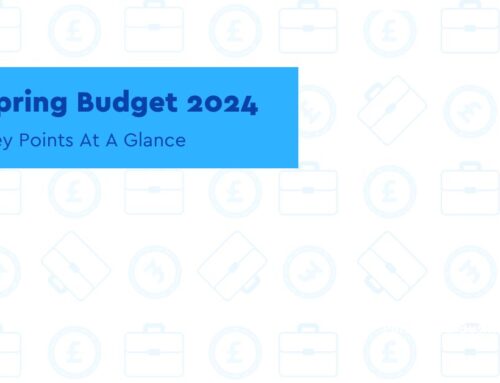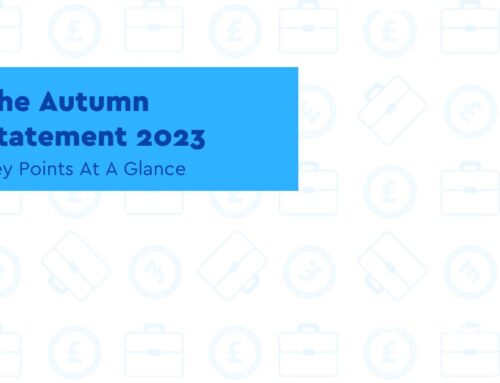What you need to know this week
September 25, 2020
Hello and welcome to our weekly wrap. This week we’ve rounded up the latest news that impacts you, including our summary of the Chancellor’s Job Support Scheme, plus the Business Loan and VAT extension updates. We’ve also covered other Covid-19 news this week across the UK impacting businesses, employers and individuals.
Chancellor unveils Job Support Scheme
Chancellor Rishi Sunak yesterday announced a new Job Support Scheme, which will allow employers to keep employees in a job on shorter hours rather than making them redundant.
The scheme will directly support the wages of people in viable jobs working at least a third of their normal hours and will run for six months and begin in November.
The new measures will replace the furlough scheme, which will come to an end in October.
Key announcements:
- The new Job Support Scheme will allow employers to keep employees in a job on shorter hours with the Government subsidising the pay of employees who are working fewer than normal hours due to lower demand
- Bounce back loans – The Chancellor is introducing ‘Pay as You Grow.’ Loans can be extended from six to ten years. Struggling firms can choose to make interest-only repayments and anyone can also apply to suspend repayments for up to six months
- Coronavirus Business Interruption Loans – Business Interruption Loans will have their government guarantee extended up to ten years, allowing lenders to give people more time to repay, while the deadline for all loan schemes will be pushed back until the end of 2020
- Deferred tax bills – Businesses will also be given more time and flexibility over deferred tax bills. Currently, deferred VAT payments are due in March – insead, businesses can now spread the VAT bill over 11 smaller repayments with no interest to pay
- SEISS – The chancellor announced an extension of the self-employed grant on similar terms and conditions as the new job support scheme. The extension in full will last until the end of April 2021, covering 20% of average monthly trading profits via a government grant
- The current VAT cut – down to 5% from 20% – will be extended until March 2021 for tourism and hospitality businesses
What new Covid restrictions mean for small businesses
Prime Minister Boris Johnson this week announced further restrictions in an attempt to curb the growing spread of Covid-19 across the UK.
While many areas are still under stricter local measures, businesses will now risk a £10,000 fine and even closure if they breach regulations as staff and customers in indoor hospitality must now wear face coverings.
The new restrictions
Business – including hospitality, retail and taxi drivers
The requirement to wear a face covering will now become compulsory for bar staff, shop workers, waiters, staff in retail, people in taxis and everyone using hospitality services.
Table service is now enforced in hospitality venues while there is also now a 10pm curfew for pubs, bars and restaurants from Thursday.
From Monday, only 15 people can attend a wedding service and reception – 30 people can still attend a funeral.
Office workers who can work from home are again being encouraged to do so. Workers in ‘key public services and in all professions’ where this is not possible, such as construction and retail, should continue to go in.
Businesses will be fined £10,000 and could be closed if they breach regulations including not wearing face coverings and the ‘rule of six’.
Covid-secure guidelines will become a legal obligation for retail, leisure and tourism firms, with those who do not comply running the risk of fines of £10,000 or closure.
The fine for people not wearing face coverings in shops, supermarkets, public transport, taxis and in indoor hospitality will double to £200 for a first time offence, from £100, or £60 in Scotland, Northern Ireland and Wales.
Previous quarterly advisory fuel rates can be used up until September 30
The previous advisory fuel rates for the previous quarter, June 1 – August 31, can be used up until the end of this month, before individuals will be required to use the most recent quarterly updates from September onwards.
September changes saw a rise from the previous quarter for both diesel and LPG rates; notably, the rate for diesel engines between 1,601cc and 2,000cc increasing from 9 pence per mile (ppm) to 10ppm, after falling from 11ppm in March to 9ppm in the previous quarter.
The rate for LPG engines measuring less than 1,400cc also increased from 6ppm to 7ppm, as did the rate for LPG engines measuring over 2,000cc, from 11ppm to 12ppm.
The next review will take place towards the end of November ahead of new rates being in place for December 1.
House sales rise following introduction of stamp duty holiday supporting nearly 750,000 jobs
House sales rose 15.6% in August following the introduction of the stamp duty holiday, with the construction sector reporting a 30% boost in output in July. The government introduced a temporary stamp duty holiday for residential properties worth up to £500,000, effective from July 8, 2020 until March 31, 2021.
The holiday means nine out of ten people getting on or moving up the property ladder will pay no SDLT at all. This measure delivers an average saving of £4,500 in SDLT.







